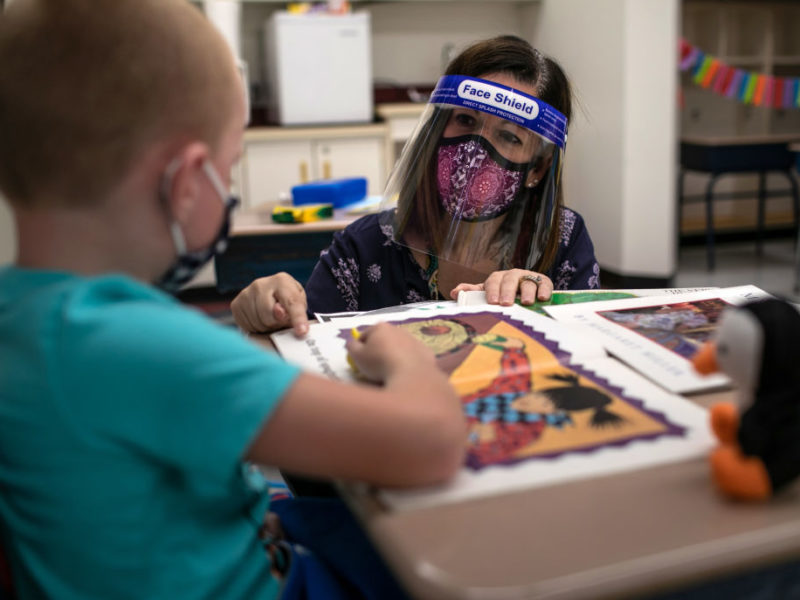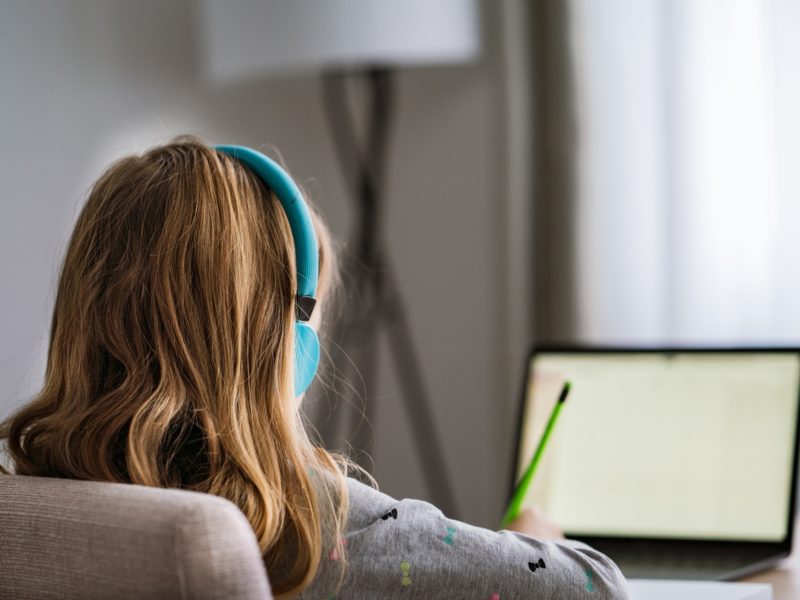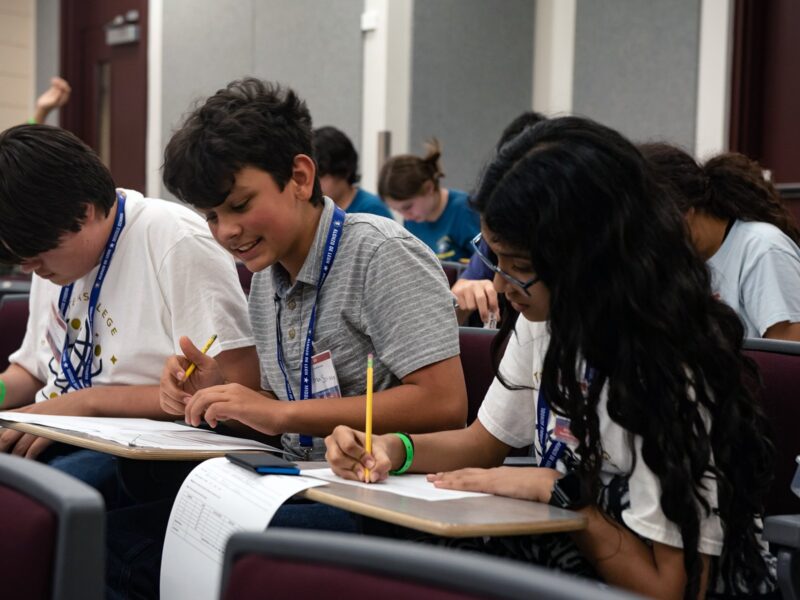Upcoming Workshops To Focus On COVID-19’s Impact On Education
More than 60 researchers from colleges across Texas A&M University will spend the next two days discussing how the COVID-19 pandemic affected education and learning. They’ll also identify potential solutions to prepare for future crises.
The two-day workshop is part of the university’s Livable Texas initiative, which brings researchers together to identify critical issues facing Texas. Jeffrey Liew, professor of educational psychology and associate dean for research at the College of Education & Human Development, said Livable Texas aims to leverage the insights and expertise of faculty and staff to ultimately improve the lives and outcomes of Texans. Livable Texas is spearheaded by Jack Baldauf, senior associate vice president for research.
Liew, who is leading the Wednesday and Thursday workshops alongside Frank Ashley, senior associate dean of the Bush School of Government and Public Service, said workshop participants will discuss the long-term consequences of learning loss on the future of work, workforce development and workplace provisions in Texas and the U.S.
“The pandemic has disrupted and altered many aspects of our daily lives,” he said. “For children and youth who are in K-12 education, many parents, education leaders and policymakers have raised concerns about the learning loss associated with COVID-19.”
This is commonly referred to as the “COVID slide” in academic performance, according to Liew, adding that students from rural and high-poverty areas and those in special education are more vulnerable to learning loss associated with the pandemic.
The workshop will also cover topics that go beyond academics. There is significant social emotional learning loss associated with the pandemic, Liew said, because many students experienced trauma and also lacked the social experiences and peer interactions critical for their learning and healthy development.
“While these are some of the immediate impacts from the COVID-19 pandemic on students’ academic and social-emotional learning loss, these impacts could have long-term or downstream consequences on the labor markets if these educational issues are not addressed or remedied,” Liew said. “That is why this workshop is so critical, and I think that is why we are seeing so many of our researchers at Texas A&M responding to the call to bring their expertise and talents to address these issues through the workshop.”
Other discussion topics will include leveraging technologies, intelligent tutoring and A.I. to recover from learning loss; infrastructure and accessibility to technologies and internet; and equitable allocation of educational resources and interventions.
“We see the workshop as a way to stimulate and seed ideas among researchers with complementary interests and expertise,” Liew said. “After the workshop, we plan to find ways to support and sustain teams of researchers who will continue to grow ideas and plans into interdisciplinary and collaborative projects that will have impact by improving the lives of people in Texas and beyond.”
Colleges and schools represented by participants who have registered for the workshop include the colleges of Education & Human Development, Engineering, Liberal Arts, Agriculture and Life Sciences, Architecture, Geosciences, Medicine, Veterinary Medicine & Biomedical Sciences; the School of Law; the Bush School of Government and Public Service; Texas A&M at Galveston and Texas A&M at Corpus Christi.
“I think this speaks to how important these issues are for all of us, and our researchers at Texas A&M are really invested and committed to using their expertise and talents to help find solutions for addressing the impacts from the pandemic and to find ways to be proactive and be prepared, and better yet, to prevent future crises and hazards from happening,” Liew said.
Media contact: Caitlin Clark, caitlinclark@tamu.edu





